True Unicorn Root
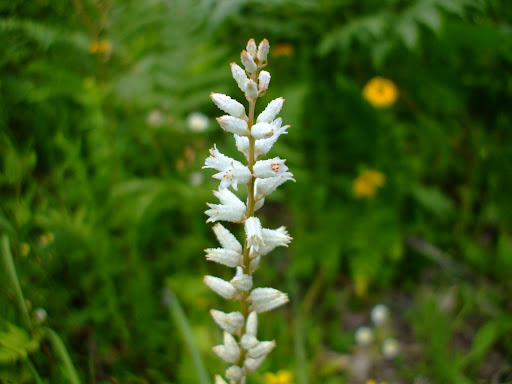
True Unicorn Root (Aletris farinosa) is a perennial herb known for its medicinal properties. The plant has narrow, grass-like leaves and produces small, white or greenish flowers arranged in a dense, spike-like inflorescence. The root is the primary part used for its therapeutic benefits. True Unicorn Root is valued in traditional medicine for its potential to support female reproductive health and overall wellness.
1. Size:
- The plant typically grows to a height of 12 to 24 inches (30 to 60 cm). The root is slender, with a length of about 3 to 6 inches (7.5 to 15 cm).
2. Color:
- The leaves are green, and the flowers are white or greenish. The root itself is cream-colored to light brown.
3. Texture:
- The leaves are narrow and smooth, while the root has a slightly fibrous texture. The flowers have a delicate, clustered appearance.
4. Fragrance:
- True Unicorn Root has a mild, earthy aroma. The scent is not strong but can be noticeable when the root is dried or used in tinctures.
5. Uses:
True Unicorn Root is traditionally used to support female reproductive health, including regulating menstrual cycles and easing symptoms of menopause. It is also believed to have a general toning effect on the body.
The root can be used to make herbal teas or tinctures, which are consumed for their potential health benefits.
It has been used in various traditional remedies to treat conditions like digestive issues and fatigue.
6. Habitat:
- True Unicorn Root is native to North America and thrives in moist, well-drained soils in shaded or partially shaded areas. It is commonly found in woodlands and meadows.
7. Cultural and Spiritual Significance:
Unicorn Root has been historically associated with supporting female reproductive health and balance. It is often used in traditional herbal practices to promote overall well-being.
In various indigenous traditions, True Unicorn Root has been used in rituals and remedies aimed at supporting women’s health and vitality.
Spiritual Properties
Balancing Energy: True Unicorn Root is believed to help balance the body’s energy, particularly in relation to female reproductive health. It is used in spiritual practices to support overall harmony and well-being.
Connection to Nature: The herb is seen as a natural ally in connecting with the earth and promoting a sense of grounding and stability.
Medicinal Properties
Reproductive Health: True Unicorn Root is traditionally used to support female reproductive health, including menstrual regulation and easing menopausal symptoms.
Digestive Support: It is believed to help with digestive issues and can be used to improve appetite and reduce gastrointestinal discomfort.
General Tonic: The root is thought to have a general tonic effect on the body, potentially helping to improve overall energy and vitality.
Allergic Reactions
True Unicorn Root is generally considered safe when used in appropriate amounts and under professional guidance. However, there is limited scientific research on its safety and efficacy, so it is advisable to consult with a healthcare provider before using it, especially if you are pregnant, breastfeeding, or taking other medications.
Allergic Reactions: Some individuals may experience allergic reactions, including skin irritation or digestive discomfort. Those with known allergies to similar plants should use caution.
Skin Irritation: Prolonged or direct contact with the root may cause skin irritation in sensitive individuals. It is advisable to use gloves when handling the herb
Digestive Discomfort: Excessive use of True Unicorn Root may lead to digestive discomfort, such as nausea or upset stomach. It is recommended to use the herb in moderation.
Pregnancy and Breastfeeding: There is limited information on the safety of True Unicorn Root during pregnancy and breastfeeding. It is best to consult a healthcare provider before using the herb during these times.

Healing Bath for Emotional Trauma
Healing Bath for Emotional Trauma This bath is designed to aid in emotional healing and the release of negative feelings, making it ideal for times
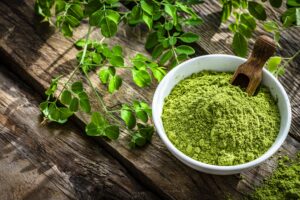
Moringa Leaf Powder
Hibiscus Flowers Moringa (Moringa oleifera), often referred to as the "Miracle Tree," is a highly nutritious plant native to the Indian subcontinent and parts of
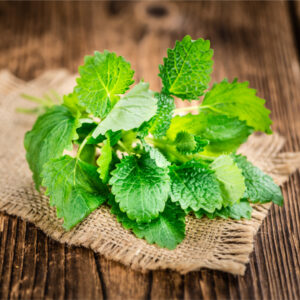
Lemon Balm
Lemon Balm Lemon Balm is a perennial herb in the mint family, known for its lemon-scented leaves and small, delicate flowers. It has been used

Echinacea and its Evolving Role in Cold Treatment
Echinacea and its Evolving Role in Cold Treatment Echinacea, a vibrant purple coneflower, has a rich history in traditional medicine, particularly valued for its immune-boosting
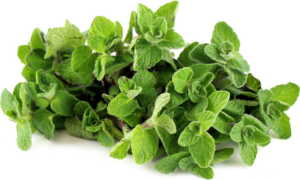
Za’atar
za'atar Za'atar is both the name of a Middle Eastern herb and a spice blend made from that herb, mixed with other ingredients like sumac,
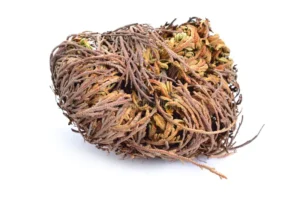
Jericho
Jericho Jericho, also known as Rose of Jericho or Anastatica hierochuntica, is a fascinating plant known for its remarkable resurrection abilities and distinctive appearance. This